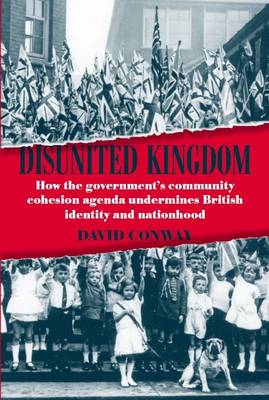For many years, faith schools were popular and uncontroversial. Parents like them, and they produce better-than-average results. However, the riots that broke out in some British cities in 2001, followed by the terrorist atrocities of 9/11 and 7/7, have focused attention on the danger of allowing young people to grow up in ghettoes, separated from the mainstream of society. Faith schools have consequently been blamed for damaging social cohesion. In "Disunited Kingdom David" Conway examines the claims made against faith schools and finds them to be without foundation, whilst acknowledging that some schools run by fundamentalist Muslim groups give legitimate cause for concern. He goes on to argue that the government's community cohesion agenda, based on pressurising members of different groups to mix with each other, may be ineffective and even counter-productive. The new Identity and Diversity strand added to citizenship education seems designed to undermine any sense of common belonging or national pride. What schools should be doing is teaching British history properly and making sure that pupils are fluent in English.
The dominant native language and culture should be privileged in schools. We also need to see evidence that Ofsted is taking seriously the threat to social cohesion presented by a minority of fundamentalist Muslim schools. The main threats to community cohesion in Britain today come from mass immigration and the radicalisation of young British-born Muslims. The Government alone has the capacity to deal with these threats, but chooses to pursue a less troublesome and less effective strategy instead.
- ISBN10 1906837058
- ISBN13 9781906837051
- Publish Date 20 April 2009
- Publish Status Out of Print
- Out of Print 16 June 2010
- Publish Country GB
- Imprint Civitas
- Format Paperback
- Pages 198
- Language English
